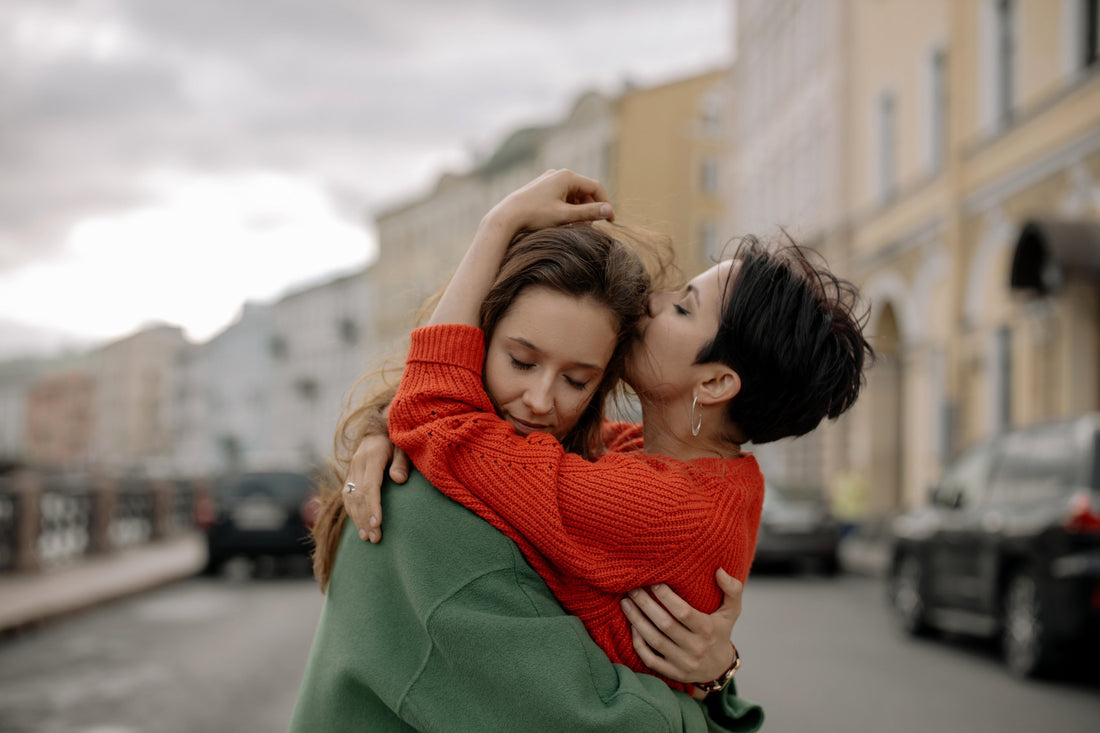
Love Unleashed: Celebrating Valentine's Day Beyond Heteronormative Traditions
Share
Valentine's Day boasts a storied legacy dating back to ancient Rome, where it was once known as Lupercalia, a pagan festival honoring the god of fertility. Over time, the holiday transformed and became linked to Saint Valentine, a Christian martyr renowned for clandestinely marrying soldiers banned from wedlock. Today, February 14th marks a day for couples worldwide to express love and gratitude to one another.
Despite its ancestry, Valentine's Day has become closely tied to conventional heterosexual norms. The occasion is frequently portrayed as a day for couples in typical, monogamous relationships to display affection through chocolates, flowers, and romantic acts. This can pose difficulties for queer, non-binary, and transgender individuals who don't fit within these strict expectations.
Challenges Faced by Queer Individuals
Queer individuals often confront pressure to comply with traditional relationship norms on Valentine's Day. Society often reinforces the notion that a "real" relationship consists of a man and woman, which can make it tough for queer couples to feel their relationships are valid or acknowledged. This can lead to feelings of exclusion and marginalization, especially in communities where LGBTQ+ rights remain unrecognized.
Pressure to Adhere to Conventional Gender Roles
Transgender and non-binary individuals may also face pressure to adhere to conventional gender roles during the holiday. Society commonly reinforces the idea that men should initiate romantic gestures and women should receive them. This can make the day challenging for those who don't align with traditional gender roles or for those in relationships with partners of different gender identities.
Embracing Love and Diversity
So, how can queer folks celebrate Valentine's Day in a manner that bucks traditional norms? There are various options, including:
-
Celebration with friends: Valentine's Day presents an excellent chance to celebrate love and friendship with a group of friends. Plan a fun activity together or go out to dinner to show appreciation for each other.
-
Celebration with community: Many LGBTQ+ organizations host events and parties on Valentine's Day, offering a chance for community members to celebrate love and relationships.
-
Celebration with self-love: Valentine's Day is a perfect opportunity to concentrate on self-care and self-love. Plan a relaxing spa day, treat yourself to a special meal, or do something that brings happiness.
-
Celebration with a partner: If in a relationship, celebrate Valentine's Day in a way that's unique and meaningful to the relationship. Plan a special outing, write love letters to each other, or create a special memory together.

Valentine's Day can pose difficulties for queer, non-binary, and transgender individuals who don't fit within the narrow expectations associated with the holiday. Nonetheless, there are various ways to celebrate the day in a meaningful and empowering manner. By focusing on love, friendship, and self-care, a Valentine's Day celebration can be fulfilling and meaningful.
